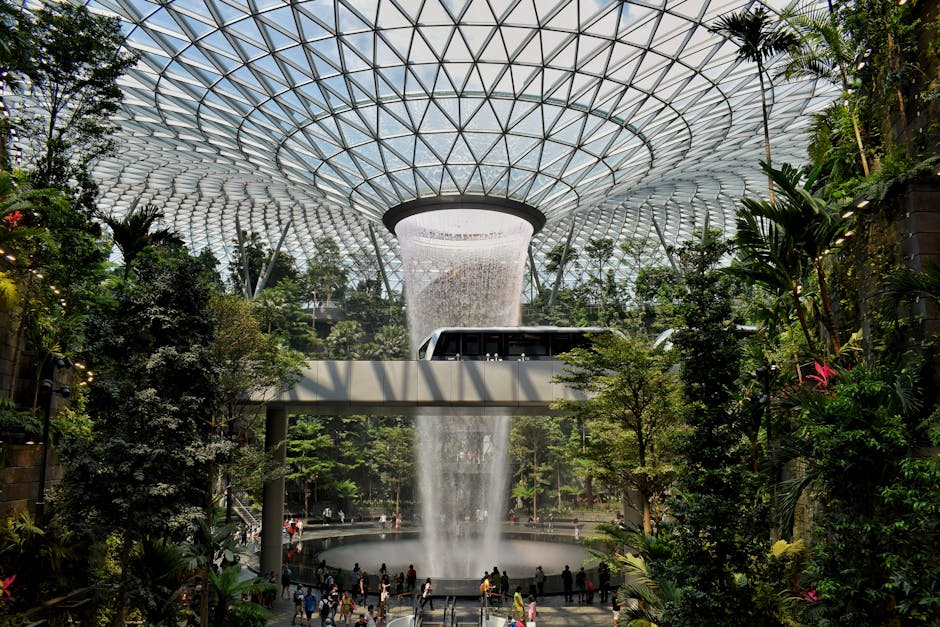The landscape of travel and tourism has undergone a radical transformation, largely driven by technological advancements. From booking a flight to experiencing a new culture, technology has become deeply intertwined with every aspect of the journey, profoundly altering the way we travel and interact with destinations. This article explores the multifaceted impact of technology on travel experiences, encompassing pre-trip planning, in-destination interactions, and the evolution of the travel industry itself.
Early iterations of technology, such as the advent of the telephone and the printing press, laid the groundwork for modern travel facilitation. However, it is the digital revolution of the past few decades that has truly redefined the travel experience. The internet, coupled with mobile devices, has empowered travelers with unprecedented access to information, resources, and opportunities. No longer are travel agents the sole gatekeepers to planning trips; individuals now have the tools to research destinations, compare prices, and tailor their journeys to specific needs and desires.
Pre-trip planning has undergone a dramatic metamorphosis. Gone are the days of painstakingly flipping through travel brochures or consulting physical maps. Online travel agencies (OTAs) have democratized the travel industry, enabling users to compare prices across various airlines, hotels, and rental car companies. This unprecedented comparison capability has pushed pricing down, creating more competitive markets and, consequently, more affordable options for travelers. Furthermore, social media platforms have become invaluable tools for research, allowing potential travelers to immerse themselves in the local culture through user-generated content, virtual tours, and real-time updates from fellow travelers. Travel blogs, reviews, and social media posts contribute significantly to the pre-trip planning process, shaping expectations and often influencing choices.
Beyond cost comparison and research, the rise of personalized travel experiences is another notable effect of technology. Algorithms and data analytics power personalized recommendations, tailoring flight routes, hotel options, and even dining experiences to individual preferences. This bespoke approach caters to a wide range of traveler profiles, from budget-conscious backpackers to luxury travelers seeking exclusive experiences. Mobile apps play a central role in this transformation, offering instant access to maps, translation tools, and real-time updates, enhancing navigation and communication while abroad. Furthermore, the development of AI-powered chatbots has revolutionized customer service in the travel industry, offering instant support and resolutions to traveler queries 24/7.
In-destination experiences are similarly revolutionized. Navigation apps like Google Maps and Waze provide real-time directions, optimizing travel time and reducing the frustration of getting lost. Mobile payment systems and contactless technology streamline transactions, making everyday tasks, like purchasing food or souvenirs, convenient and seamless. This ease and accessibility enhance the travel experience by removing unnecessary hurdles.
Technological advancements have profoundly impacted the industry itself. The travel industry has witnessed a remarkable rise of startups and entrepreneurs creating innovative products and services. From ride-sharing platforms that connect travelers with local transportation to virtual reality tours that offer a glimpse into potential destinations, these innovations enhance the entire travel ecosystem. This entrepreneurial spirit is complemented by the increasing integration of automation in various aspects of travel operations, from booking processes to airport security. Travel agencies are evolving into digital hubs, empowering agents to provide a more personalized and dynamic travel experience.
Despite the numerous advantages, technology’s influence on travel experiences is not without its challenges. Data privacy and security remain crucial concerns, especially given the increasing reliance on digital platforms. The potential for over-tourism and the impact of technology on the authenticity of travel experiences are also significant considerations. While technology connects individuals across the globe, it can also contribute to a homogenized experience if not managed responsibly. Moreover, the digital divide, with uneven access to technology and internet connectivity in different parts of the world, may disproportionately benefit some travelers while excluding others. Balancing accessibility with the preservation of local culture and environment is paramount to sustain the benefits of tourism and ensure its positive impact on communities.
In conclusion, technology has irrevocably changed the travel landscape. It empowers individuals to plan, research, and experience travel in ways unimaginable just a few decades ago. However, it is crucial to acknowledge the potential pitfalls and proactively address them to ensure the ongoing positive impact of this transformative force on the travel and tourism sector. By striking a balance between technological advancement and responsible tourism practices, we can harness the power of technology to unlock more accessible, immersive, and sustainable travel experiences for all. The future of travel is undoubtedly digital, and it is up to us to shape it responsibly and thoughtfully.






